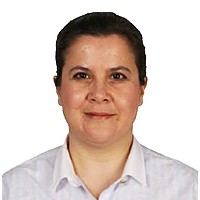Timely initiation of breastfeeding and associated factors among mothers who have infants less than six months of age in Gunchire Town, Southern Ethiopia 2019
Published on: 9th April, 2020
OCLC Number/Unique Identifier: 8582297046
Background: Timely starting of breastfeeding is defined as the starting of breastfeeding within one hour after childbirth. Globally mothers who practiced breastfeeding within one hour were less than half in percent. In least developed countries like Eastern and Southern Africa including Ethiopia infant breastfeeding practice within one hour were low. The aim of this study was to assess timely initiation of breastfeeding and associated factors among mothers who have an infant less than six months of age in Gunchire town, Southern Ethiopia.
Methods: The study was conducted from May 1 to 28, 2019 in Gunchire town. Data were collected by using a structured face to face interview questionnaire. The community based cross-sectional study was employed on 333 women. The study participants were selected by Simple random sampling techniques. The data were coded, entered, cleaned and analyzed by SPSS with windows version 21.0. Binary and multivariable logistic regression statistical model was used. Adjusted odds ratio with 95% CI was computed to see the strength of association.
Results: In this study the magnitude of timely initiation of breastfeeding was 80.5%. Governmental employed mothers (AOR=2.914, 95% CI: 1.139, 7.46), Antenatal care follow up (AOR=5.99, 95% CI: 1.29, 27.81), Baby skin to skin contact (AOR=2.4, 95% CI: 1.092, 5.34), Vaginal delivery (AOR=5.82 95% CI: 1.68, 20.14) Institutional delivery (AOR=5.5, 95 CI%: 1.66, 18.3), Good knowledge of breastfeeding (AOR=4.02, 95% CI: 1.04, 15.59) and Breast disease (AOR=0.24, 95% CI: 0.08, 0.73) were significantly associated with timely starting of breastfeeding.
Conclusion: More than two third of the mothers timely initiated breastfeeding within one hour after birth. Being governmentally employed, having Antenatal care follows up, skin to skin contact, mode of delivery, knowledge of mothers about breastfeeding and place of delivery were positively and significantly associated with timely initiation of breast feeding, whereas, breast disease was protective against timely starting of breastfeeding. Therefore, we would like to recommend Enamore woreda health office and Gunchire primary Hospital staffs work at MCH clinic to provide appropriate services and stimulate the mothers to initiate breastfeeding, skin to skin contact enhancing within the first hour of birth.
Community-acquired AKI and its management
Published on: 17th March, 2022
OCLC Number/Unique Identifier: 9486957608
Acute Kidney Injury (AKI) is defined as an abrupt decrease in kidney function within hours to days and is caused by multiple factors. Community-acquired AKI (CA-AKI) is common in developing countries, and it is crucial to bring awareness about its epidemiology and simple preventive strategies that can tackle this potentially serious complication. Infections, use of over-the-counter medicines, traditional herbal remedies, animal (and insect) bites, and pregnancy-related complications are common causes of CA-AKI in developing countries. The incidence of vector-borne disease-related AKI and obstetric causes of AKI have decreased following better public health policies in most developing countries. Appropriate fluid management is critical in AKI, both in terms of prevention of development and progression of AKI. Timely initiation and de-escalation of fluid therapy are both equally important. Kidney replacement therapy (KRT) is indicated when AKI progresses to stage 3 and/or patients develop refractory fluid overload or electrolyte imbalances and/or uremic complications. Hemodialysis is the most common modality of KRT in adults, whereas peritoneal dialysis is the dominant modality in small children. Convective renal replacement therapy, such as hemofiltration, is increasingly used in critically sick patients with AKI and hemodynamic instability. To summarize, CA-AKI is a common, serious, and often preventable complication of certain conditions acquired in the community, and is, therefore, a matter of utmost concern from the public health perspective.
Timely initiation of breastfeeding and associated factors among mothers with vaginal and cesarean deliveries in public hospitals of Addis Ababa, Ethiopia
Published on: 21st April, 2022
OCLC Number/Unique Identifier: 9485822018
Background: WHO and UNICEF recommend breastfeeding to be initiated within an hour of birth. However, timely initiation of breastfeeding remains low in Ethiopia. Therefore, this study aimed to compare the timely initiation of breastfeeding and associated factors with cesarean and vaginal deliveries in public hospitals in Addis Ababa, 2021. Methods and materials: Comparative cross-sectional study was conducted from January 2021 to February 2021 in public hospitals of Addis Ababa. 322 mothers within three days of delivery at the postnatal ward of the respective public hospitals were selected. A multi-stage sampling method was employed with the final participants being recruited by systematic random sampling. Data was entered to Epi data Version 4.6 and analysis was performed by SPSS Version 26. A Binary and multivariate logistic regression statistical model was used. Adjusted odds ratio with 95% CI was computed to see the strength of association. Result: Timely breastfeeding initiation was 79 (51.2%) and 123 (80%) for cesarean and vaginal deliveries. With a vaginal delivery, pre-lacteal feeding (AOR = 5.50, 95% CI: 1.83 - 16.57) was significantly associated with timely initiation of breastfeeding. Multiparity (AOR = 2.14, 95% CI: 1.02 - 4.50), support from health care workers (AOR = 2.602, 95% CI: 1.16 - 5.82), and pre-lacteal feeding (AOR = 2.55, 95% CI: 1.13 - 5.75) were significantly associated with timely initiation of breastfeeding with cesarean delivery. Conclusion: The rate of timely initiation of breastfeeding differs according to the mode of delivery. Cesarean delivery, as compared to vaginal delivery, was associated with a lower rate of timely initiation of breastfeeding.
















